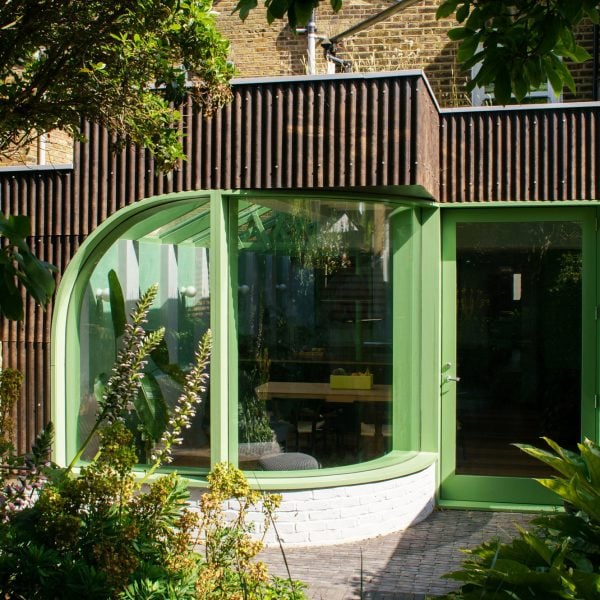Architectural studio CAN has extended a terraced London house with a palette of wood and hemp and a large curved window that aims to redraw its connection to the garden.
The Stoke Newington home, named Verdant House in honour of its jungle-like outdoor space, has been expanded with a timber-framed side and rear extension to meet the needs of a young family.
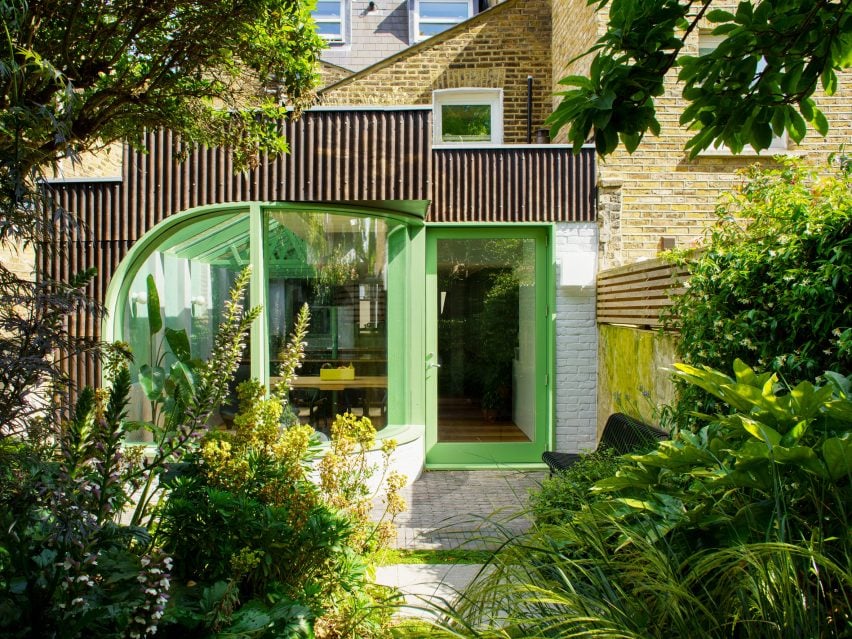
Verdant House’s original floor plan included a long galley kitchen with a low ceiling and a “failing” conservatory that was too hot in summer, too cold in winter and cut off the garden from the main house.
“The clients wanted a more interconnected ground floor that was much more focused towards the garden and allowed them to adapt the spaces as they grew as a family, open-plan but flexible,” CAN director Mat Barnes told Dezeen.
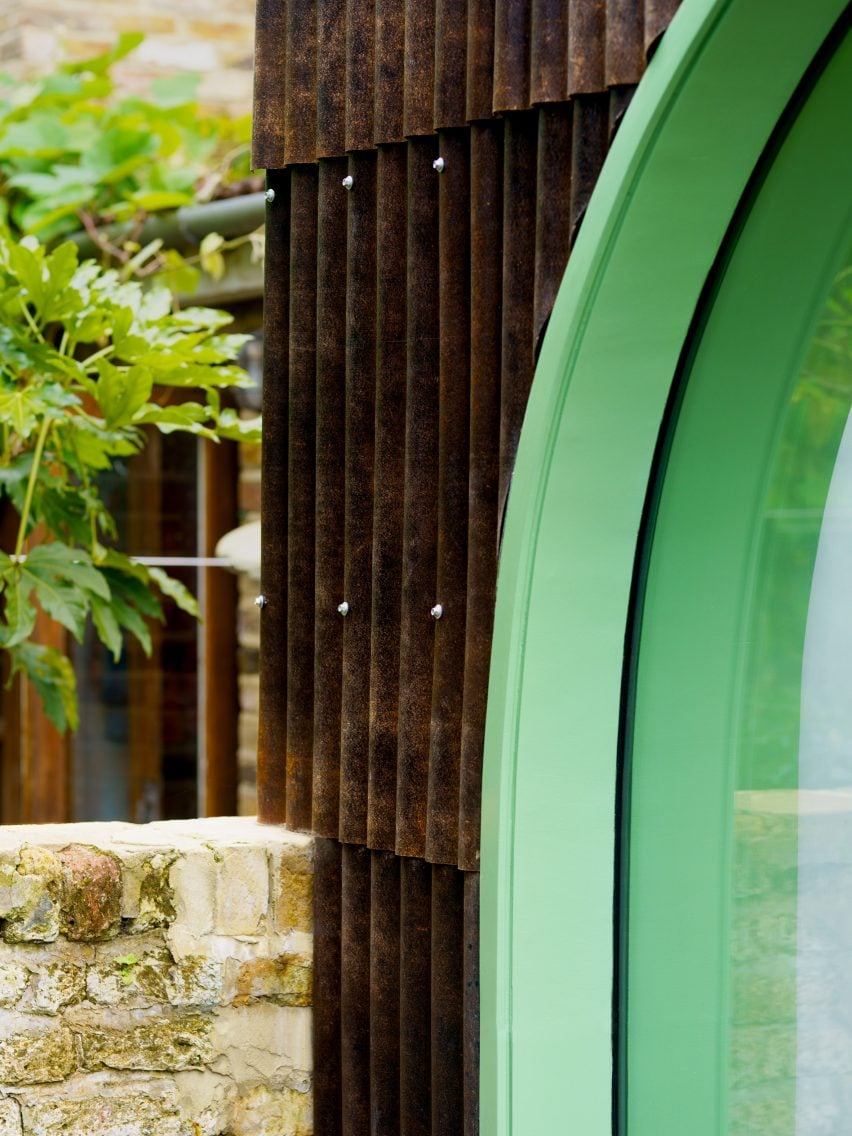
CAN has introduced an open-plan living, kitchen and dining area in the timber-framed extension, within which the floor is lowered by 20 centimetres from the rest of the home to create a sense of openness.
Its interior is dominated by natural materials including an exposed glue-laminated timber (glulam) structure, which CAN said aligns with the client’s request for a “forest-inspired” palette.
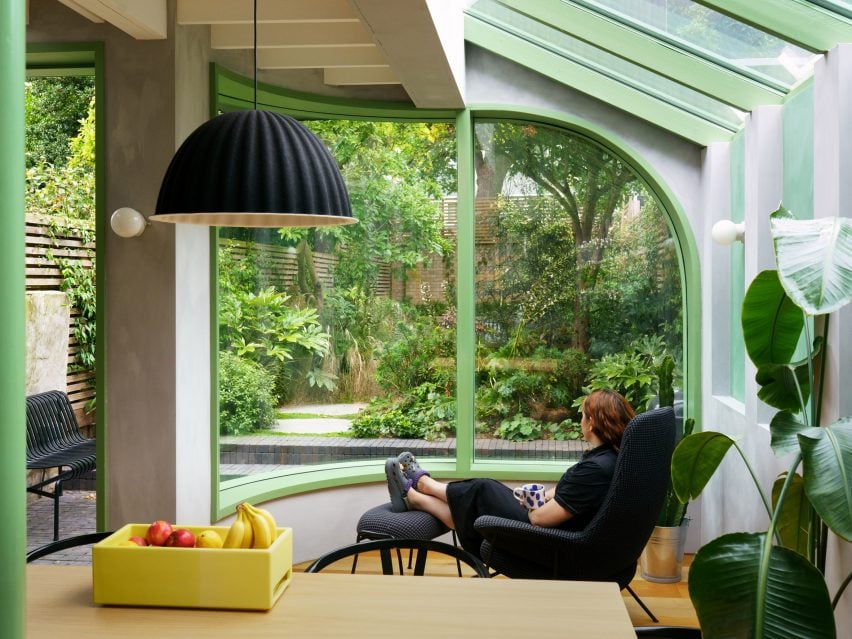
The extension’s structure comprises 85 per cent glulam while the exterior is clad in panels of corrugated hemp fibre designed to change colour and texture as it weathers over time. It is topped with a meadow-planted roof.
Verdant House’s centrepiece is its sweeping curved glass window looking out to the garden, which references a Victorian shop front. It is intended to reconnect the home its outdoor space after the old conservatory had left them “disjointed”.
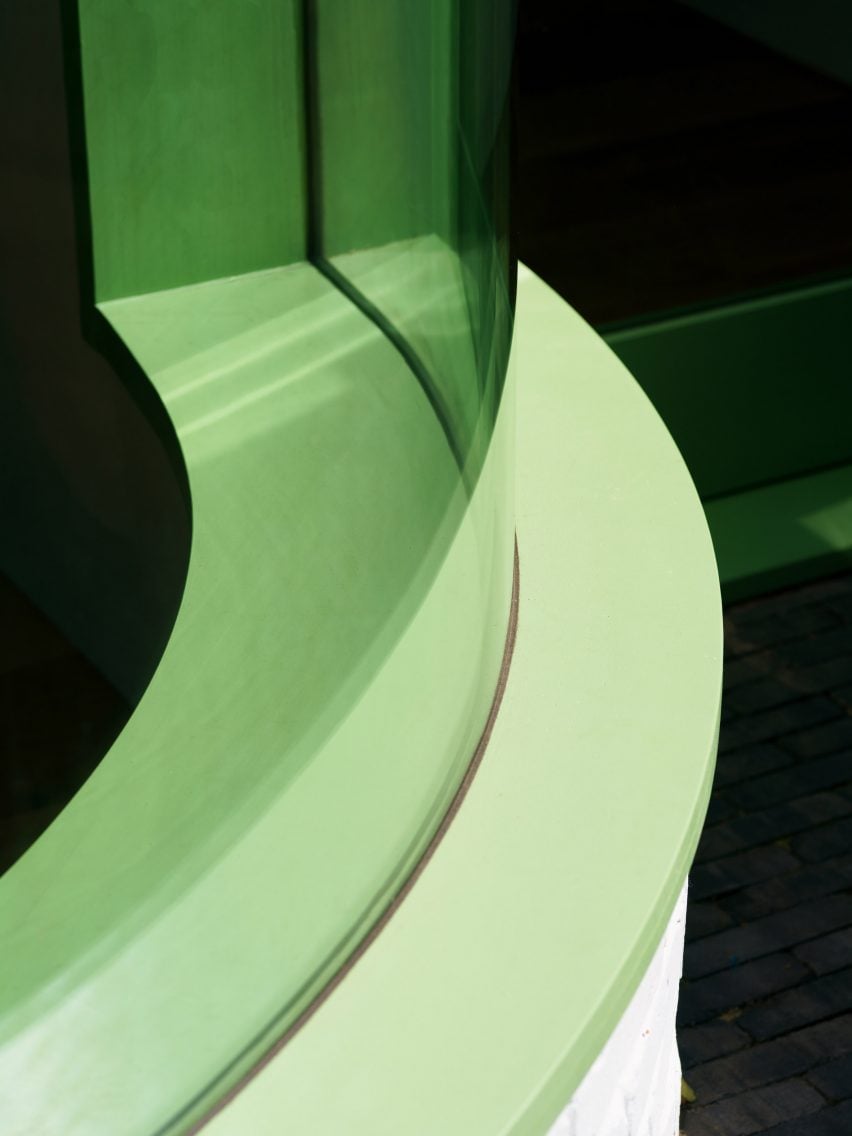
“Many Victorian shops used curved windows on either side of a central doorway, which allowed uninterrupted views into the shop window as a customer entered,” explained Barnes.
“Why not do this from the inside out?”
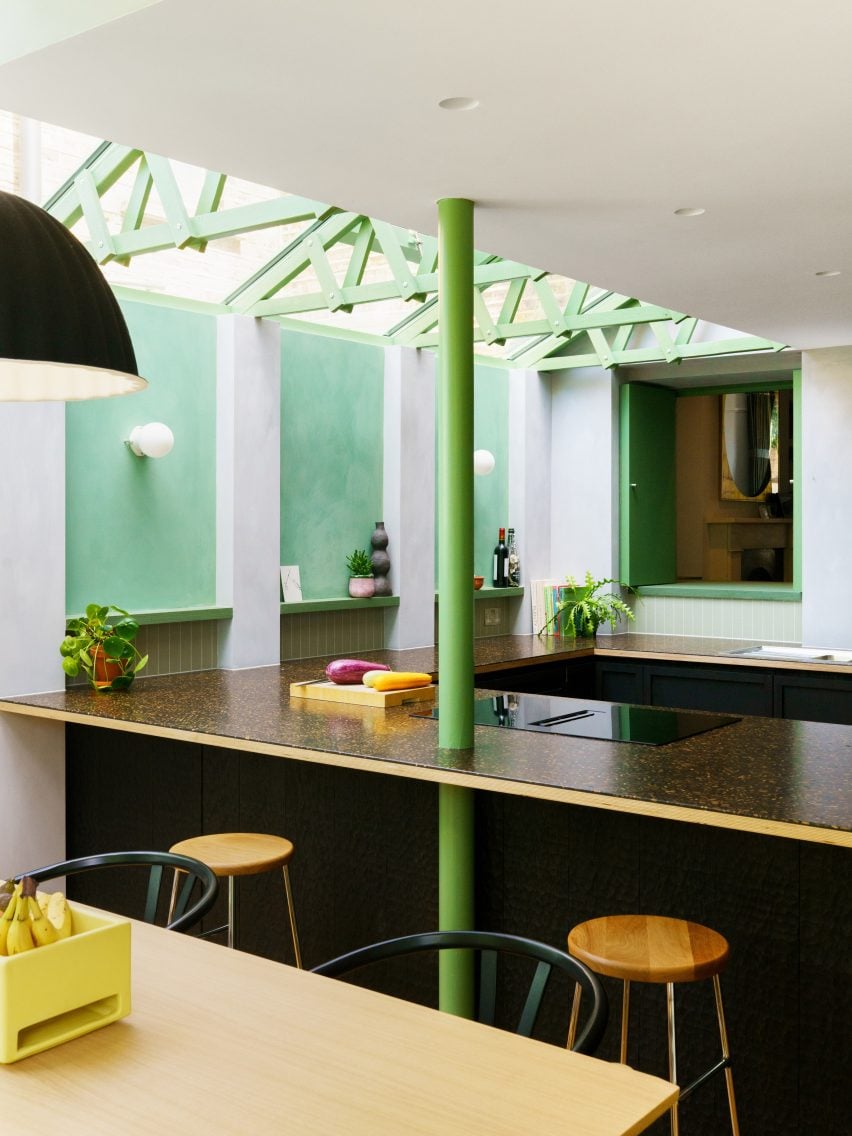
The window’s position next to the oversized glazed door now gives the owners dual aspect views, meaning they can view their garden up close and the northwest sky at a distance from
the same chair.
It was custom-built for the house and presented the team with several challenges, including making it large enough for strong visual impact but small enough to squeeze through the tight terraced house.
“As it’s such an unusual item and we only found one supplier who would make it for us at a cost that was sensible,” Barnes added.
To add flexibility to Verdant House’s open-plan layout, CAN introduced full-height hemp fibre curtains and Douglas fir shutters that allow the family to open and close off spaces as their spatial needs change.
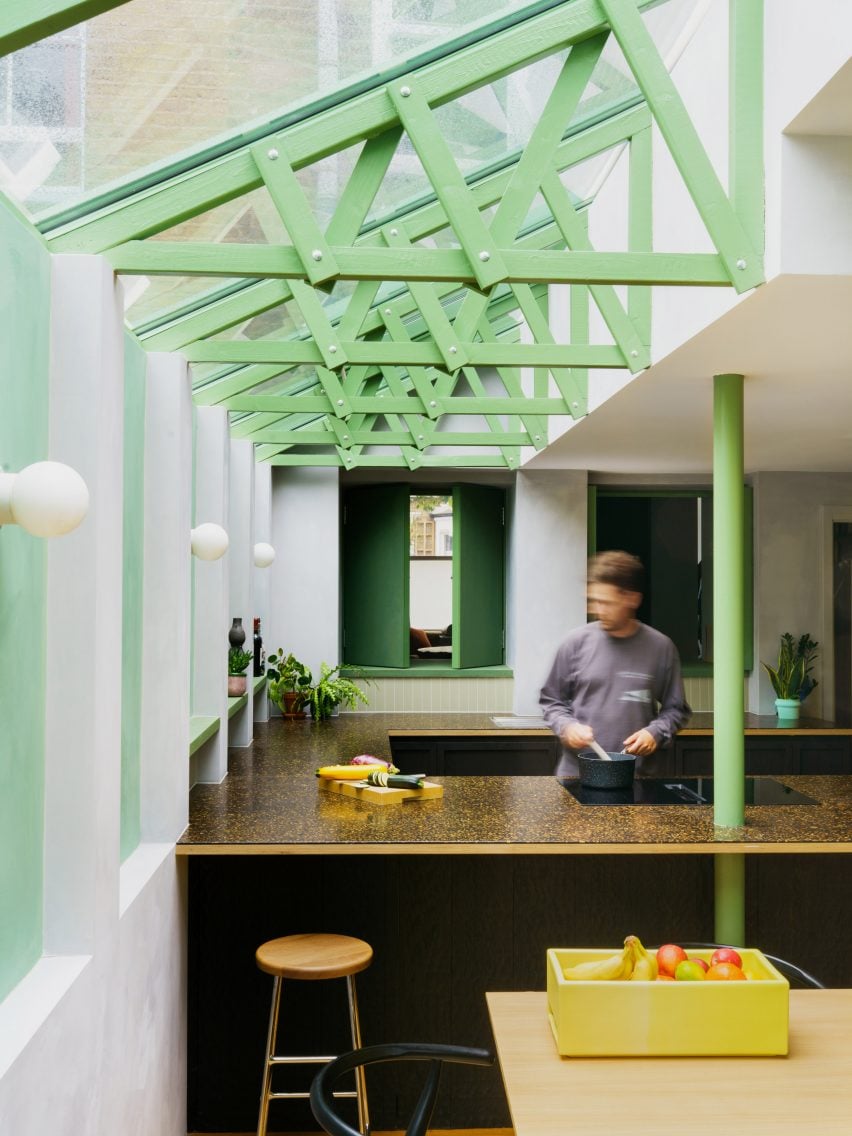
The heart of Verdant House is now the light-filled kitchen, featuring a roof light supported by bolted green trusses. CAN also designed cabinet fronts, crafted from chiselled oak boards and stained with rich, dark-toned linseed oil.
“The project was about creating a soft but high-impact design that is personal to the client and celebrates natural materials,” said Barnes.
“Every part of this home is crafted with intention, from the trusses in the kitchen to the way materials and textures come together to create a space that reflects the client’s tastes and the way they want to live.”
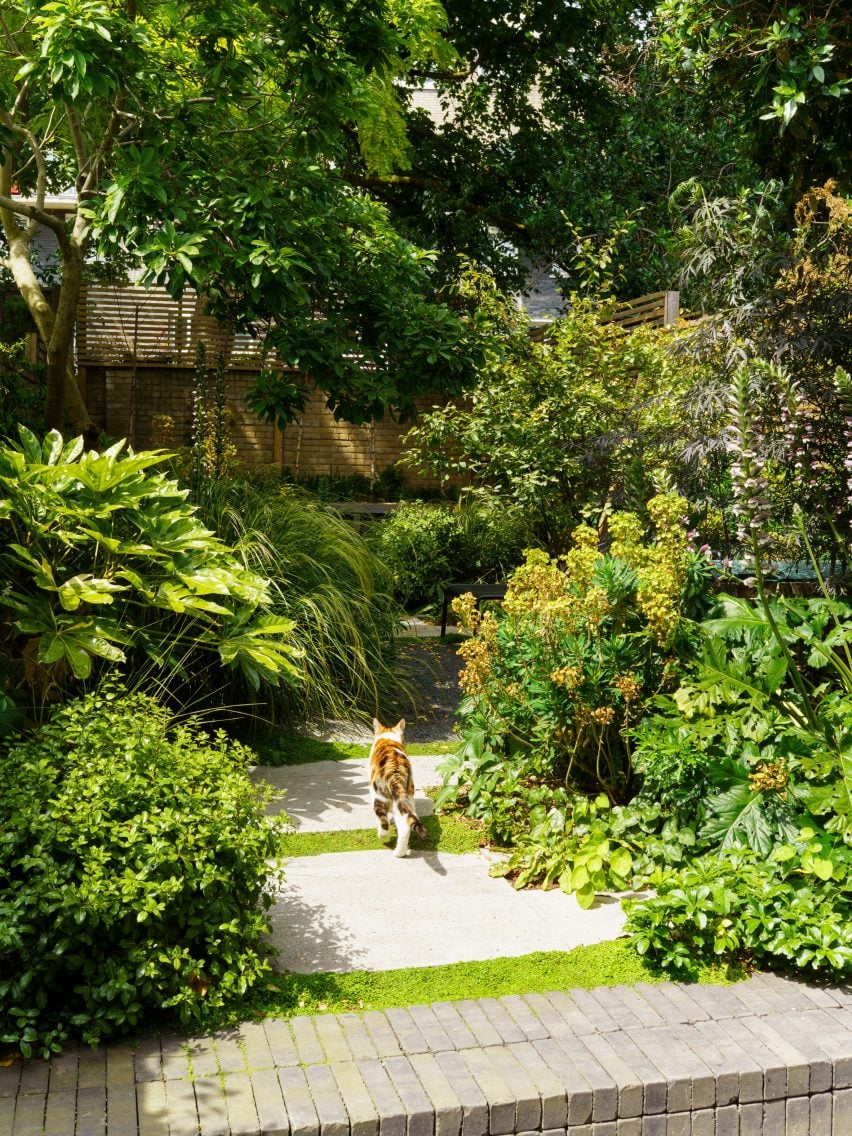
Barnes founded CAN in 2016, having previously been an associate at Studio 54 Architecture.
His first solo projects include a blue and white striped house extension and a renovation of his own home in south London complete with a fake Disneyland mountain.
The photography is by Rick Pushinsky.

